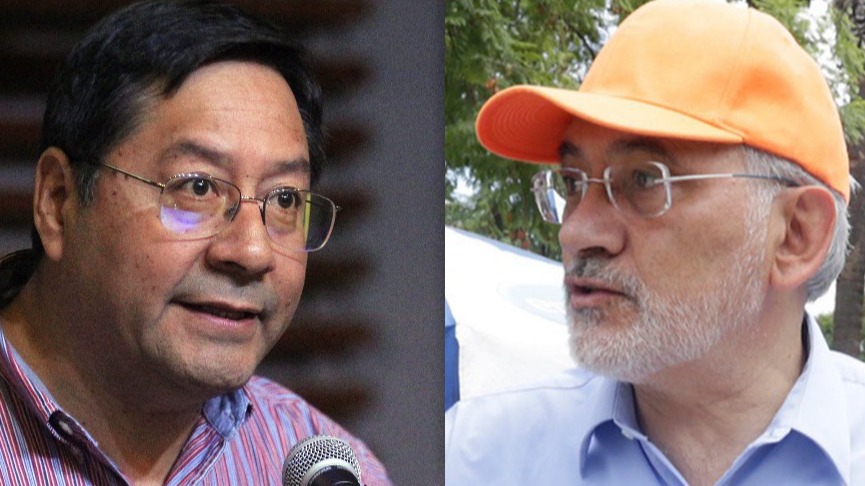RIO DE JANEIRO, BRAZIL – A poll released on Wednesday in Bolivia, a little over two weeks before the elections, draws as the most likely scenario the holding of a second round between the candidate leading the voting intentions, Luis Arce, of the Movimiento al Socialismo (MAS, party of ex-president Evo Morales), and ex-president Carlos Mesa. The poll, which was conducted after the country’s interim president Jeanine Áñez withdrew her candidacy, was announced by Unitel, the main Bolivian TV channel.
Arce shows 41.2 percent of the voting intentions and Mesa 33.5 percent. According to Bolivian law, a candidate can win in the first round only by meeting two requirements: achieving over 40 percent and beating the closest competitor by at least ten percentage points. Arce met both criteria in polls held two weeks ago, that is, before Áñez withdrew her candidacy.
The interim president, who had poor results in the most recent polls, claimed that her priority was to prevent a MAS victory in the first round. Her electorate ultimately split between the second and third placed -Mesa and far-right Luis Fernando Camacho-, but the bulk inherited by the ex-president may be enough to force a second round against Arce. It is assumed that the candidate opposing the MAS candidate would be stronger in a second round.

Morales’ party is undergoing a serious crisis triggered by the president’s ousting last November, and has struggled to increase its electorate, made up mainly of low-income sectors. Its strategy consists in seeking a first-round victory, capitalizing on the political division formed within the opposition after 14 years of Morales’ administration.
Candidate Camacho holds a voting intention of 17.7 percent and is clearly in first place in Santa Cruz, the wealthiest and least indigenous region in the country. He said he will not follow Áñez’s model and will not resign in favor of Mesa, because he (Mesa) represents “the old politics” and was “complicit” with Morales. In parallel, he considers himself the only candidate able to investigate and punish the “crimes” of the former period. However, one-third of Camacho’s voters could migrate to Mesa if the possibility of a MAS victory in the first round became apparent.
The electoral result will hinge on the unpredictable combination of Mesa and Camacho’s performances, each taking chances from the other, and on MAS’s ability to maximize its voting numbers. There are still many undecided voters: 21.7 percent, according to the poll.
There has been talk of a troubled end result that would entail serious risks for the country. Only 31 percent of the population fully trusts the Electoral Court, despite the fact that it was completely replaced after the 2019 presidential elections were overturned for alleged fraud.
In that election, the goal of both parties in opposition to the Morales government was the same: to thwart the MAS victory and enable a second round of elections. In the end, the official result was by such a narrow margin that it encouraged allegations of fraud against Morales, who was trying to be reelected for the third time, notwithstanding the result of a popular referendum where a large majority voted he should not be a candidate.
Camacho led the urban middle class protests against this purported fraud, seeking to force Morales’ resignation. He proposes a radical change in the legacy of the former president, while Mesa is more moderate. However, both vow to discard the statist economic model, where power is shared between the government and progressive social organizations (labor unions and peasant communities) as well as the denomination “Plurinational State” enshrined in the 2009 Constitution by Morales and MAS.
Several proceedings in the Electoral Court seek to prevent MAS from taking part in the election. The main ones are based on charges against candidate Luis Arce for allegedly disclosing internal surveys from his political organization, an infraction that the electoral law punishes with the annulment of the party that commits it.
The electoral court has referred these actions to the Constitutional Court, which alerted that it will not be able to rule on them before October 18th, election day. A few days ago, groups of activists protested outside the electoral offices in several regions to demand that the authorities prevent MAS from participating, which they consider an “affront to democracy”.
Source: El País

